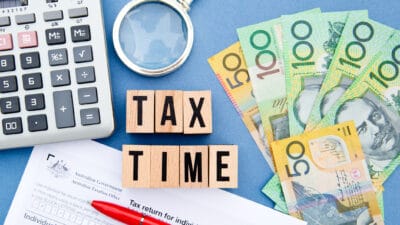Time does go by fast, doesn't it? It's now mid-April, which means that the end of the financial year is just 2-and-a-half months away. And the end of the financial year walks hand-in-hand with tax time.
While some (if not most) of us find tax time, well… taxing, it is, unfortunately, part of the deal for anyone who invests in ASX shares. So let's have a quick look at what kind of considerations you need to think about when it comes to taxes and shares. None of this is anything more than general advice, so make sure you also speak to your tax professional too!
Dividends
The Australian Taxation Office (ATO) typically views dividend income as regular income. That means that any dividends you receive from your ASX share portfolio will have to be added to your personal income for tax purposes. However, that does come with a caveat. If your ASX dividends also come with franking credits (which many do), you are entitled to claim those credits as a tax deduction. If you have no taxable income (if you receive a government or superannuation pension for example), you may still be able to claim those franking credits as a cash refund.
One more thing to remember. If you have your dividends set to automatically reinvest under a dividend reinvestment program (DRIP), the ATO will still treat these dividends as income, even though you didn't receive an actual cash payment.
Capital gains tax
If you buy an ASX share, and sell it later for a profit, the gained amount is also taxable income from the ATO's perspective. However, the taxation of capital gains functions a little differently than that on other forms of income. If you have held an ASX share longer than one year, you may be able to claim a 50% discount on your CGT. Yet another incentive to invest for the long-term! Further, if you have previously sold shares for a loss, you can use that capital loss to offset any gains you have made subsequently.
Deductions
Under ATO rules, any expenses that you may incur in the course of investing in, or receiving income from, ASX shares may be tax deductible. That might include tax agent expenses, investing courses, publications or services, or accounting software fees. Of course, this can vary from person to person, and from investment to investment. So again, make sure you check with your tax professional. But you also want to make sure that you claim a deduction for any expenses you are legally entitled to.






